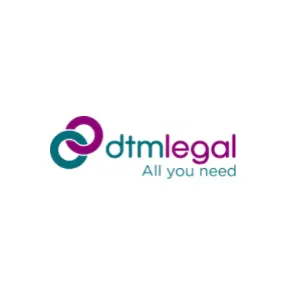DTM Legal

Heather Lally is a Senior Associate Solicitor, specialising in Estate Administration, Estate and Succession planning including the preparation of Wills, Trusts, Court of Protection work, Powers of Attorney, along with advice for the elderly regarding care.
A large proportion of Heather’s career has been spent advising high net worth commercial and agricultural clients across Cheshire and the North West. Her work also covers advice in relation to care home fee funding and long term care issues, ensuring that clients have Attorneys appointed for them for both Financial decisions and Health and care decisions or dealing with Deputy applications through the Court of Protection.
Heather works with a broad range of clients providing advice from straightforward matters to complex estates and trusts including business and farming clients. Her work includes advising on inheritance tax planning for high net worth clients and high value estates, Business Relief and Agricultural Relief, advising on asset protection and guarding against potential claims against an estate.
In dealing with an estate the team at DTM Legal ensure beneficiaries receive their entitlements as swiftly as possible and that all aspects of the estate and tax are finalised.
We advise clients in relation to the preparation and registration of Trusts, along with the smooth running of Trusts, payment and reporting of tax.
The Court of Protection matters we deal with include applications to appoint a “Deputy” (where there is no Attorney) to manage the financial affairs of a person who has lost capacity, consent for a property to be sold, and Statutory Will applications.
We can also act as Professional Executor, Administrator, Trustee, Deputy or Attorney for financial decisions if needed. Heather is a full member of STEP (the Society for Trust and Estate Practitioners) and a full Member of The Association of Lifetime Lawyers. She is also the former Chair of the STEP Cheshire Committee and a member of the Agricultural Law Association.
As a founding member of Cheshire Later Life Hub Heather’s involvement/role includes providing information to individuals in need of advice and assistance particularly those dealing with elderly relatives and friends, those with vulnerable needs and disabilities as to how they can best be provided for in the future.
“The clearly have the ethos of simply getting on with the job in hand as efficiently and openly as possible. Personal tax, trusts and probate can be a very overwhelming and complex area but DTM Private clients takes all that away from the client with a reassurance that is sadly lacking from the so called “bigger” firms.”
Frequently Asked Questions
1. Do I need a Lasting Power of Attorney (LPA)?
If you are over 18 and have a sole bank account and/or investments, receive income from employment, pensions or other sources, own or rent property, have business interests, then you should consider an LPA for your financial decisions.
2. Do I need both a Financial decisions and a Health and care decisions LPA?
A registered LPA without restrictions allows your chosen Attorney(s) to act on your behalf in relation to all of your property and financial decisions if you are unable to deal with your affairs. If you own a business this can be vital to ensure the continuity of that business.
An Attorney in relation to your health and care decisions can give or refuse consent to life sustaining treatment (if you wish them to do so). Without this, doctors and medical practitioners may be faced with having to make difficult decisions where there are conflicting family views.
3. How do I get authority to act on behalf of someone’s finances if they don’t have capacity to appoint an Attorney by LPA?
An application can be made to the Court of Protection to appoint a “Deputy” to manage the financial decisions for the person who is not able to deal with such matters themselves. In some cases, depending on the value of an individual’s assets, a Local Authority Deputy may be appointed.
4. Should I give away my property during my lifetime?
This depends on the circumstances of an individual. However, in most cases if the reason for the gift is an attempt to avoid potential care home costs in the future, the answer is usually no, as it can be regarded as an “intentional deprivation of capital”.
Specific advice is also needed about the tax consequences of making a gift including a gift of property that you still intend to live in, and other issues that can arise with life changing circumstances such as divorce, death, bankruptcy and marriage. A gift of property by Will, so the gift takes place after your death, is in most cases a better option.
5. How will my care be funded?
This can depend on your health, nursing care needs and value of your assets, income and expenditure. If you are assessed as having a need for continuing health care (CHC), your care may be provided free of charge by the NHS. In some instances a person may not be entitled to CHC funding initially, but their health may deteriorate which means that an assessment for CHC funding may be needed at a later stage. If you are not entitled to CHC, paying for your care will depend on the value of your capital. Advice should be sought from Solicitors, Independent Financial Advisors and Accountants as to different options regarding care funding.
6. Do I need a Will?
Yes it is advisable to have Will to appoint your chosen Executors to deal with your estate for you and so that those you wish to inherit on your death do so. You can also appoint guardians of minor children in your Will.
If you do not have a Will, your estate will be inherited by those entitled under the “intestacy rules” who may not necessarily be those you would wish to inherit.
7. There is no Will and a lack of testamentary capacity to instruct. Can anything be done?
Yes, in certain circumstances an application can be made to the Court of Protection for a “Statutory Will”. The Official Solicitor will consider the need and case for a “Statutory Will”, along with the reasons for it.
8. How can future finances and assets be protected for my vulnerable and/or disabled beneficiary?
Trusts can be established in your lifetime or by your Will with Trustees appointed to manage funds for vulnerable and/or disabled beneficiaries. This can assist not only with what payments are paid out for the benefit of such beneficiaries, but can also take into account to whom payments are made and the amount. This can avoid the beneficiary losing or not being entitled to valuable means tested state benefits.
9. Who can assist me the above issues?
DTM Legal LLP has an experienced team of Solicitors (including members of the Society of Trust and Estate Practitioners (STEP), The Association of Lifetime Lawyers and the Agricultural Law Association (ALA)) who deal with elderly client matters, Lasting Powers of Attorney, Court of Protection work, preparation of Wills, Estate planning, Estate administration and Trusts.
For more information, please contact Heather Lally on 01244 354822 or 07719 561624 or email heather.lally@dtmlegal.com
This information is based on information as at January 2022 and is not intended to be comprehensive or to provide specific legal advice. It should not be relied upon in the absence of specific advice given in relation to particular circumstances.
Contact Us
Your local Cheshire Hub for later life solutions
Cheshire Later Life Hub provides information, on a huge range of services, for the elderly and vulnerable across Cheshire.
0151 808 0971
info@cheshirelaterlifehub.co.uk
Address
56 Berwick Road, Little Sutton, Ellesmere Port, CH66 4PR

